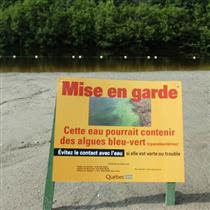As part of Planet Under Pressure, a BBC News Online series looking at some of the biggest environmental problems facing humanity, Alex Kirby explores fears of an impending global water crisis.
Water scarcity: A looming crisis? (Part 2)
Alex Kirby
BBC News Online environment correspondent
 The world's water is finite, but the number of us is growing fast |
The world's water crisis is simple to understand, if not to solve. The amount of water in the world is finite. The number of us is growing fast and our water use is growing even faster.
A third of the world's population lives in water-stressed countries now. By 2025, this is expected to rise to two-thirds.
There is more than enough water available, in total, for everyone's basic needs.
The UN recommends that people need a minimum of 50 litres of water a day for drinking, washing, cooking and sanitation.
In 1990, over a billion people did not have even that.
Providing universal access to that basic minimum worldwide by 2015 would take less than 1% of the amount of water we use today. But we're a long way from achieving that.
Pollution and disease
Global water consumption rose sixfold between 1900 and 1995 - more than double the rate of population growth - and goes on growing as farming, industry and domestic demand all increase.
As important as quantity is quality - with pollution increasing in some areas, the amount of useable water declines.
More than five million people die from waterborne diseases each year - 10 times the number killed in wars around the globe.
And the wider effects of water shortages are just as chilling as the prospect of having too little to drink.
Seventy percent of the water used worldwide is used for agriculture.
Much more will be needed if we are to feed the world's growing population - predicted to rise from about six billion today to 8.9 billion by 2050.
And consumption will soar further as more people expect Western-style lifestyles and diets - one kilogram of grain-fed beef needs at least 15 cubic metres of water, while a kilo of cereals needs only up to three cubic metres.
Poverty and water
The poor are the ones who suffer most. Water shortages can mean long walks to fetch water, high prices to buy it, food insecurity and disease from drinking dirty water.
 Millions of poor people spend hours every day carrying water |
But the very thing needed to raise funds to tackle water problems in poor countries - economic development - requires yet more water to supply the agriculture and industries which drive it. The UN-backed World Commission on Water estimated in 2000 that an additional $100bn a year would be needed to tackle water scarcity worldwide.
This dwarfs the $20bn which will be needed annually by 2007 to tackle HIV and Aids, and, according to the Commission, it is so much it could only be raised from the private sector.
Even if the money can be found, spending it wisely is a further challenge. Dams and other large-scale projects now affect 60% of the world's largest rivers and provide millions with water.
But in many cases the costs in terms of population displacement and irreversible changes in the nearby ecosystems have been considerable. Using underground supplies is another widely used solution, but it means living on capital accumulated over millennia, and depleting it faster than the interest can top it up.
As groundwater is exploited, water tables in parts of China, India, West Asia, the former Soviet Union and the western United States are dropping - in India by as much as 3m a year in 1999.
Technical solutions
New technology can help, however, especially by cleaning up pollution and so making more water useable, and in agriculture, where water use can be made far more efficient. Drought-resistant plants can also help.
Drip irrigation drastically cuts the amount of water needed, low-pressure sprinklers are an improvement, and even building simple earth walls to trap rainfall is helpful.
 One kilo of grain-fed beef needs at least 15 cubic metres of water |
Some countries are now treating waste water so that it can be used - and drunk - several times over. Desalinisation makes sea water available, but takes huge quantities of energy and leaves vast amounts of brine.
The optimists say "virtual water" may save the day - the water contained in crops which can be exported from water-rich countries to arid ones.
But the amounts involved would be immense, and the energy needed to transport them gargantuan. And affordable, useable energy will probably soon be a bigger problem than water itself.
Climate change
In any case, it is not just us who need water, but every other species that shares the planet with us - as well all the ecosystems on which we, and they, rely.
Climate change will also have an impact. Some areas will probably benefit from increased rainfall, but others are likely to be losers.
We have to rethink how much water we really need if we are to learn how to share the Earth's supply.
While dams and other large-scale schemes play a big role worldwide, there is also a growing recognition of the value of using the water we already have more efficiently rather than harvesting ever more from our rivers and aquifers.
For millions of people around the world, getting it right is a matter of life and death.
Click here to read this article at BBC.










